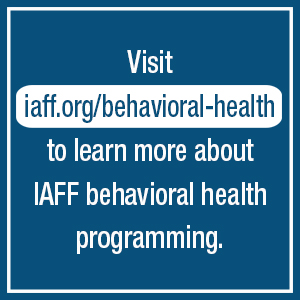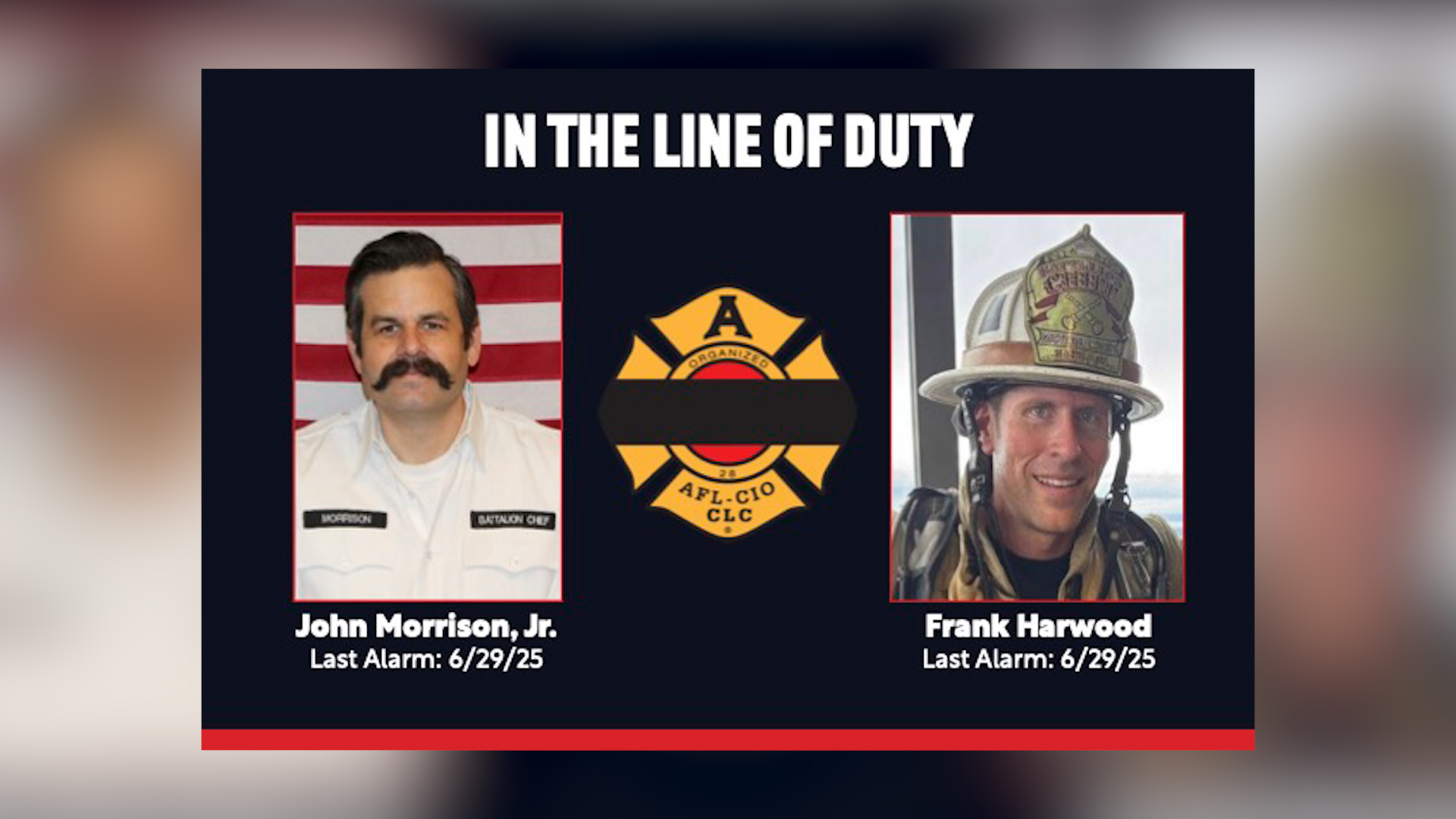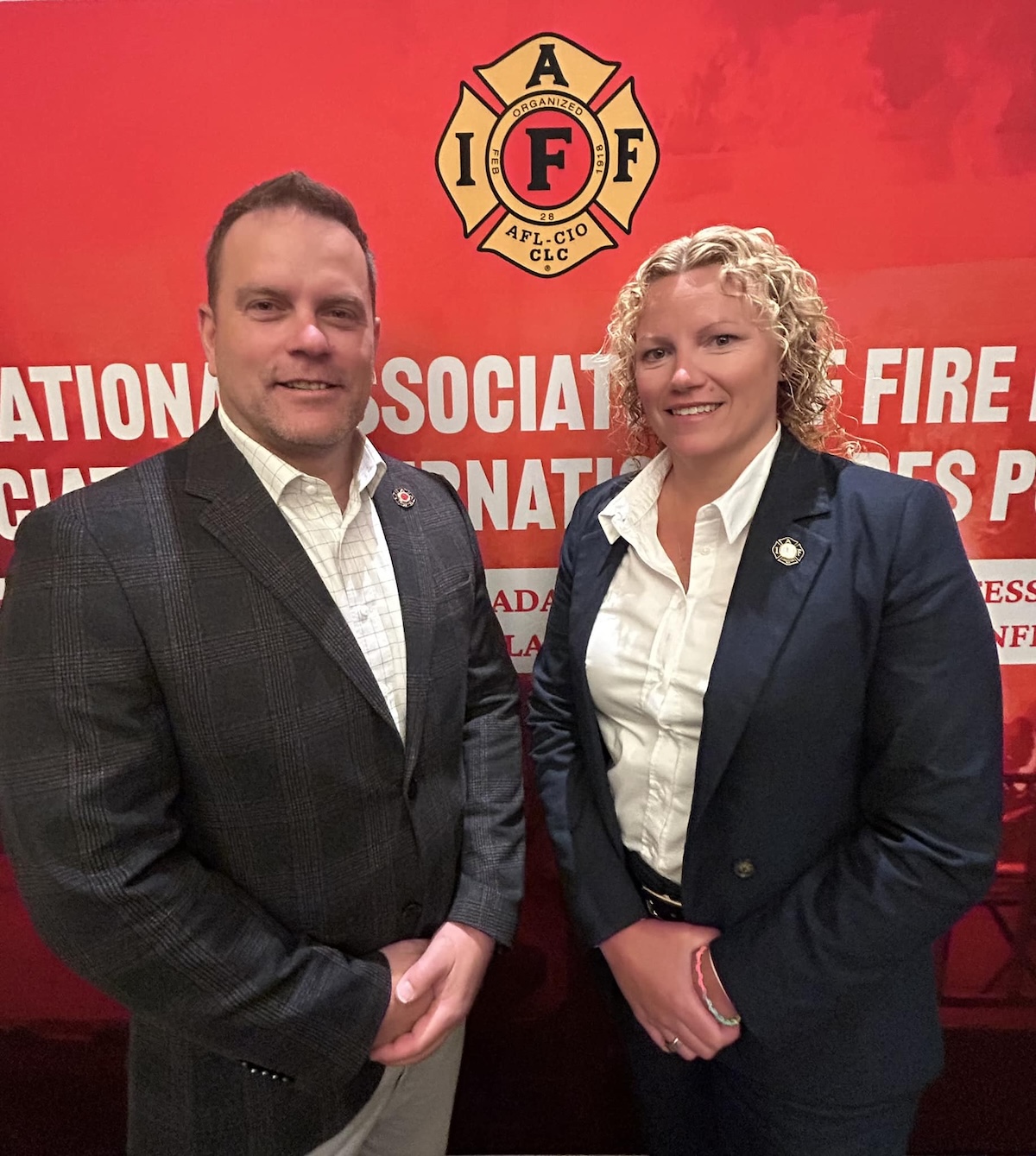
From the Summer 2022 issue of Fire Fighter Quarterly
Firefighting is not only one of the most physically dangerous professions, but “the calling” can also take a heavy toll on mental health, leaving fire fighters feeling overwhelmed, underappreciated, and often alienated from their families.
This mental state, often called “burnout,” can wreck a fire fighter’s career, impact fire companies, and threaten family life.
The IAFF has made fire fighter behavioral health a top priority, opening the first-of-its kind IAFF Center of Excellence for Behavioral Health Treatment and Recovery and launching peer support training to help members spot and address behavioral health issues.
“The resolute fire fighters and paramedics that make up this great union dutifully confront danger and trauma every shift while protecting their communities, and we know now it takes an emotional toll. We cannot ignore the great challenge of behavioral health in our ranks. We owe it to our membership and we owe it to their families,” says General President Edward Kelly.
These efforts are accelerating, with the expected opening of a second IAFF Center of Excellence on the West Coast in the first quarter of 2023 to help manage the rising demand within the fire service for behavioral health treatment. The original Center of Excellence in Upper Marlboro, Maryland, just outside of Washington, D.C., has been booked to near capacity having treated and released more than 2,200 members over the past five years.
In Canada, the IAFF has entered a collaboration with Edgewood Health Network (EHN), Canada’s leading provider of behavioral health treatment services, to help treat IAFF members.
“We have seven facilities across Canada that offer inpatient therapy, outpatient therapy and several specialized programs,” said National Director of Business Development of Edgewood Health Network (EHN) of Canada Darrin Taylor during a roundtable discussion on behavioral health at the 2022 IAFF Convention in Ottawa, Canada. “Having multiple facilities at our disposal helps prevent waitlists. If a fire fighter is in crisis but the closest center is full, EHN will escort that fire fighter to a facility with an opening.”
Taylor also discussed another important benefit offered by EHN, which is post-treatment care. “If we don’t continue to monitor our patients, we haven’t provided sufficient care and the patient may regress,” he said.
Despite the clear need for more behavioral health services and resources, many IAFF members and affiliate leaders have faced challenges convincing employers to help fund treatment. The IAFF hopes a new raft of scientific data will help affiliates successfully negotiate for behavioral health services in their contracts.
The IAFF conducted a membership-wide study, “The IAFF Combust Study,” to determine to what extent fire fighters and paramedics are experiencing behavioral health symptoms, including burnout. The results of this survey will provide detailed evidence of the scope of this behavioral health challenge, real data affiliates can show employers to negotiate working conditions.
Kevin McCann, president of Coventry, RI Local 3372, says his department has been running a 56-hour workweek since the COVID-19 pandemic began, and it has taken a clear toll on members.
“We are having trouble with retention here in Coventry because we are the only city in Rhode Island with this harsh schedule,” says McCann, who often is expected to clock overtime for a total of 72 hours and sometimes 96 hours per week. “When I get home on Saturdays, I have to catch up on sleep, so I miss some family stuff.”
McCann adds that one Local 3372 member has been experiencing post-traumatic stress disorder (PTSD) following a difficult CPR-related emergency call. He noticed the call incident was weighing on the member, who sought help from the employer. McCann says the Coventry Fire Department has denied the member’s request for time off and treatment.
McCann encouraged Coventry fire fighters to take the Combust Study survey. “We have a contract coming up soon where the shift schedule will come up and we need to be able to demonstrate what this schedule is doing to us, and this city needs to understand we need mental health services.”
“Do we have a burnout problem? We hear anecdotally we do, and this survey will help us speak with greater confidence,” says Dr. Suzy Gulliver, behavioral health consultant to the IAFF and director of the Warrior Research Institute at S&W Healthcare System. “Whatever the survey shows us, it will inform us where the hotspots are and give us targets for change.”
The IAFF Combust Study seeks to delve deeper into the issues of fire fighter behavioral health, following a survey in 2018 coproduced by the IAFF and NBC that found fire fighters throughout the fire service were experiencing mental health issues, with most indicating their fire departments were not sufficiently addressing the issue.
The IAFF initially sent the Combust Study survey to members this summer and by August 5, more than 5,000 members had completed it. The 12-minute online questionnaire delved into the impacts that issues such as the COVID-19 pandemic, 72-hour shifts, and mandatory overtime are having on fire fighter morale and mental health.
Gulliver notes that the IAFF is expanding its efforts to treat members with behavioral health issues with Project Access, a telehealth service that has been tested with 84 patients. The idea for telehealth spun from the COVID-19 pandemic as medical providers and users swiftly and broadly accepted the use of telemedicine. Gulliver expects to add more telehealth professionals to Project Access as needed.

Helping Members in Recovery is a two-hour, self-paced course for fire service personnel who want to support a member who is currently engaged in or has recently completed treatment for a mental health or substance use disorder. The course covers common behavioral health problems in the fire service, levels of behavioral health treatment, and strategies for individuals and affiliate leaders to support members in recovery.
IAFF Behavioral Health Specialist Scott Robinson says the idea for the course came as more IAFF members completed treatment at the Center of Excellence and then returned to work. “Affiliate leaders really wanted to make sure that members post-treatment were returning to a work environment that was helpful and supportive of them,” he says. “We want to be able to tell other fire fighters how they can support a fellow member in recovery.”
Treating Fire Service Members in Behavioral Health Settings will be a two-day, in-person course for licensed mental health professionals who to treat fire fighters and paramedics. The first day will involve in-class work learning about the job of emergency response and the unique culture that exists in firehouses. The second day of the course will be a FIRE OPS 101 where mental health professionals don protective gear and conduct various emergency response simulations.
“We have found from speaking to many members seeking mental health treatment that too many mental health specialists simply are not prepared to manage fire fighters’ issues and are unable to successfully help them,” says IAFF Behavioral Health Program Clinical Coordinator Lauren Kosc, who, with Robinson, will conduct the first delivery of this course this fall.



